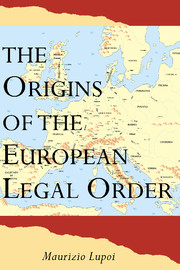Book contents
- Frontmatter
- Contents
- List of abbreviations
- 1 The early Middle Ages: a comparative approach
- 2 A historical and institutional profile of the Roman empire in the fourth and fifth centuries
- 3 Excursus I: ‘Barbarians’
- 4 Historical and institutional profiles of the ‘new dominations’
- 5 Excursus II : The days of the week
- 6 Excursus III: Anglo-Saxon charters
- 7 Consensus by assembly
- 8 Excursus IV: Authority and consensus in judicial decisions
- 9 Public allegiance
- 10 Excursus V: The Anglo-Saxon writ
- 11 Private allegiance
- 12 Open legal systems
- 13 Excursus VI: Textual ‘coincidences’ in documentary forms
- Chronology of popes and sovereigns
- Appendix of sources
- Bibliography
- Index
13 - Excursus VI: Textual ‘coincidences’ in documentary forms
Published online by Cambridge University Press: 04 February 2010
- Frontmatter
- Contents
- List of abbreviations
- 1 The early Middle Ages: a comparative approach
- 2 A historical and institutional profile of the Roman empire in the fourth and fifth centuries
- 3 Excursus I: ‘Barbarians’
- 4 Historical and institutional profiles of the ‘new dominations’
- 5 Excursus II : The days of the week
- 6 Excursus III: Anglo-Saxon charters
- 7 Consensus by assembly
- 8 Excursus IV: Authority and consensus in judicial decisions
- 9 Public allegiance
- 10 Excursus V: The Anglo-Saxon writ
- 11 Private allegiance
- 12 Open legal systems
- 13 Excursus VI: Textual ‘coincidences’ in documentary forms
- Chronology of popes and sovereigns
- Appendix of sources
- Bibliography
- Index
Summary
The scope of this excursus
The title of this concluding excursus originally ended with a question mark. Were they in fact ‘coincidences’, the resemblances that detected during my examination of cartularies from every part of Europe and throughout the early Middle Ages? Giulio Vismara pointed out in 1976 that the question of the unity of medieval law prior to the Bolognese school had scarcely been touched upon by researchers, but that such unity could be identified in customary practice, especially in private deeds, and unconstrained by national frontiers. However, like all hypotheses, it interests scholars with the same cultural background as its author and is challenged by everyone else. Nothing can be seriously said about such hypotheses until they have been tested. Personally I am not always convinced by Vismara's conclusions, some of which are affected by the very idees regues that his methods ought (if properly used) to demolish; but I entirely approve of his approach.
How I conducted my research will be of no interest to the reader, who will be interested only in assessing the results and forming his or her own judgement on that basis. Having reached the end of this book, the reader may also wish to know how the existence of the European common law is revealed in early medieval legal practice. Some idea can be gained from this final excursus, in which I examine documentary material that, although extremely incomplete, is intended to cover Europe as a whole, using samples from across the entire timespan and geographical area.
- Type
- Chapter
- Information
- The Origins of the European Legal Order , pp. 437 - 505Publisher: Cambridge University PressPrint publication year: 2000



